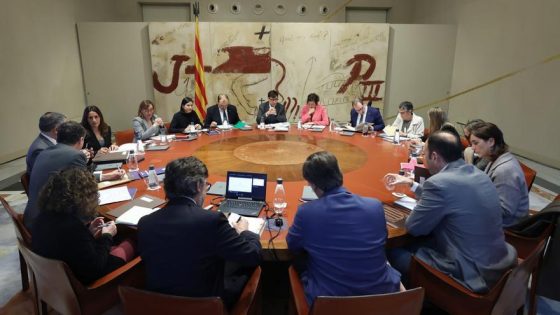The Catalan government is urging ERC not to waste 4 billion euros following their refusal to negotiate the 2025 budget. On January 21, 2025, spokesperson Sílvia Paneque emphasized the importance of these funds for Catalonia’s future. Will ERC reconsider their stance for the benefit of the region?
- Government aims to avoid conflict with ERC.
- No new budget negotiations expected for 2025.
- Hope to incorporate 4 billion euros in revenue.
- No budget cuts despite economic challenges.
- Minority government seeks piecemeal agreements.
- Upcoming negotiations with Spanish government anticipated.
Why ERC’s Budget Stance Matters for Catalonia’s Economy
What happens when political parties refuse to negotiate crucial budgets? The Catalan government faces a significant challenge as ERC has announced they will not engage in discussions for the 2025 budget. This decision could lead to a loss of 4 billion euros, impacting public services and economic stability. How will this affect the everyday lives of Catalans?
Potential Consequences of ERC’s Decision on Catalonia’s Future
The refusal to negotiate could have far-reaching effects on Catalonia’s financial health. The government is determined to find alternative solutions, but without ERC’s cooperation, the outlook is grim. Here are some key points to consider:
- The potential loss of 4 billion euros could hinder essential public services.
- Without new budgets, the government may struggle to implement its agenda.
- ERC’s stance could lead to political instability in the region.
- Future negotiations with the Spanish government may be affected.
ERC’s Role in Catalonia’s Governance and Budgeting
ERC plays a crucial role in Catalonia’s governance, and their refusal to negotiate budgets raises questions about their commitment to the region’s welfare. The government, led by Salvador Illa, is prepared to face challenges but needs ERC’s support to secure vital funding. How will this political dynamic evolve?
The Importance of Collaboration in Regional Politics
Collaboration among political parties is essential for effective governance. The current situation illustrates the risks of political stalemate. The Catalan government is looking for ways to activate mechanisms to fulfill its commitments, but without ERC’s agreement, achieving this will be difficult. Will they find common ground for the benefit of Catalonia?
As negotiations continue, the outcome remains uncertain. The stakes are high, and the future of Catalonia’s economy hangs in the balance. Will ERC reconsider their decision, or will the region face a financial crisis?
































